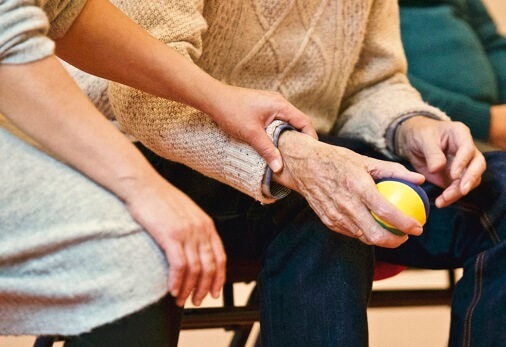 When it comes to the topic of senior health and wellness, discussing urinary tract infections (or UTIs) is a must. Why? Well, of the most frequently diagnosed infections in older adults, UTIs rank second only to respiratory infections like pneumonia. They are even more common among elderly populations in long-term care and nursing home facilities. Don’t miss this quick guide to understanding UTI and recognizing it’s symptoms:
When it comes to the topic of senior health and wellness, discussing urinary tract infections (or UTIs) is a must. Why? Well, of the most frequently diagnosed infections in older adults, UTIs rank second only to respiratory infections like pneumonia. They are even more common among elderly populations in long-term care and nursing home facilities. Don’t miss this quick guide to understanding UTI and recognizing it’s symptoms:
What is a UTI?
When bacteria infects the urinary tract system, this is known as a UTI. The urinary tract includes everything from the kidneys to the bladder and the urethra.
Also referred to as your Renal System, your kidneys are responsible for filtering excess fluid, toxins, urea, and waste substances out of your blood. They then pass the now “urine” through long tubes (ureters) that funnel into the bladder which is emptied when you relieve yourself in the restroom.
Bacteria is no stranger to this system, however, it is most often flushed out with your urine and there is nothing to worry about. When it sticks around, however, and grows, this can lead to an infection which left untreated, and can actually be life-threatening, especially for older adults.
What puts seniors at higher risk for developing UTI?
There are a handful of risk factors linked to developing a UTI in seniors including:
- Changes in a senior’s immune system make their body less equipped to fight off infection
- A longer history of UTIs increases the risk for older adults, especially women (due to the anatomical proximity of the urethra to the anus)
- Exposure to hospital-based pathogens that can cause infection is more common for older adults who are more likely to incur hospital stays
- Increasing number of accompanying conditions like Alzheimer’s and Parkinson’s among the older population can contribute to developing these types of infections
- Higher rates of incontinence among seniors put them at higher risk
- Enlarged prostate glands among elderly men can impact how well the bladder is voided and increase urine retention
- The increasing presence of things like kidney stones and catheters in the elderly give bacteria more places to grow
Recognizing the Symptoms of Elderly UTI
It is crucial to understand that the commonly associated symptoms of a UTI like a burning sensation when peeing and abdominal pain are not necessarily what an elderly person will experience who has an infection. Older adults typically have weaker immune systems that cannot mount a defense quite like a younger person, so you’re not going to necessarily see fever, sweating, chills, and pain either. Instead, you may recognize signs that seem more like dementia or cognitive decline including:
- Confusion and disorientation
- Behavior changes
- Hallucinations
- Loss of coordination
- Dizziness
- Poor motor skills
- Frequent falling
You additionally want to look out for urine that looks dark, cloudy, pink (with blood), and/or emits a strong odor. An urgency to urinate as well as lower abdomen pressure may also accompany this type of infection.
How Can Seniors Prevent UTIs?
UTI prevention can go a long way in improving overall health outcomes for seniors (and preventing hospitalizations). For seniors who experience urinary incontinence, management and hygiene play an important role in ridding the vulnerable urinary tract of bacteria.
Use a bedside commode if you have an urgency to urinate, especially during the night
Wear disposable undergarments or briefs and change them as quickly as possible a leak or accident happens (bacteria thrive in this type of warm, moist environment)
Always wipe front to back and use wet wipes or perineal spray to properly clean the area (dry thoroughly too)
Seniors with recurring UTIs may want to talk to their doctor about:
- Taking a cranberry or d-mannose supplement to make it harder for bacteria to stick to urinary tract walls
- Taking a low-dose antibiotic to ward off unwanted bacteria
- Avoiding bladder irritants like alcohol and caffeine
In addition, all seniors should practice proper hydration by regular drinking lots of fresh water. This increases the water content in urine, diluting it and helping to flush out unwanted bacteria.
Even when a UTI is present, if it is caught quickly, it can typically be cleared up in a handful of days with antibiotics. Testing for a UTI is simple and requires only a urinalysis (and possibly a culture of the bacteria present in the urine). If you recognize signs of a UTI in yourself or a loved one, contact your doctor right away.


Comments